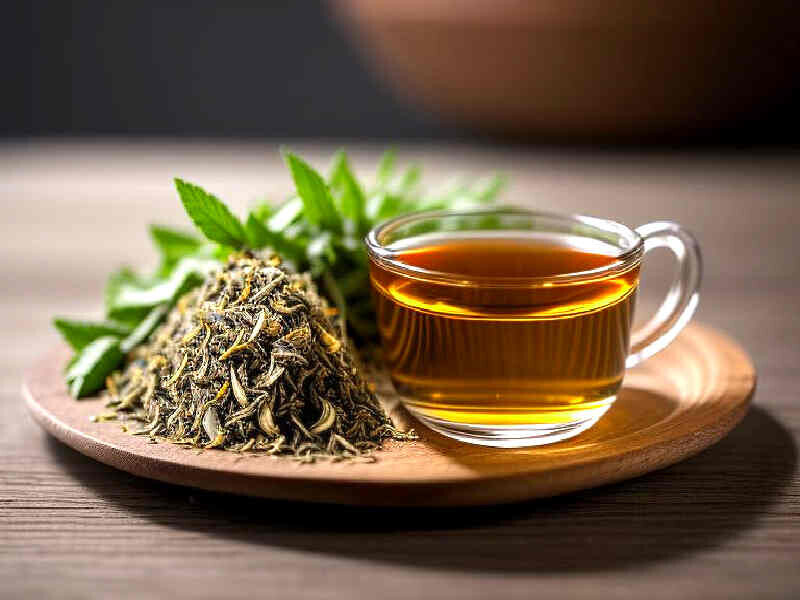.
Relaxation has been a part of tea culture almost as long as the drink itself has existed. Across various cultures, from the tea ceremonies of Japan to the herbal brews of indigenous peoples, tea has served as a soothing, warm embrace in a cup. It’s not just a drink, but a ritual that connects people with moments of tranquility.
The relaxing properties of tea often come from the natural compounds found in herbs. These compounds are what make herbal teas a must have for winding down. Think of them as tiny relaxation ninjas getting to work once you take a sip. They might not solve all your problems, but they sure can make the end of a long day feel miles away.
With the wellness movement taking over, relaxation teas have become the unsung heroes in those tiny tins and cardboard boxes lining grocery shelves. People are more into mindfulness and self-care these days, and tea fits perfectly into that groove. It’s like having a slice of calmness anytime you need it, without having to find your mindful zen space.
Sipping on a hot cup of herbal tea isn’t just about good taste. It’s also a release, a escape, and a time out from the pressures of the day. The need for that release and escape is why relaxation teas are popping up in pantries everywhere. So, whether you’re dealing with stress from work or just need a serene nightcap, a world of unique and special teas has something to offer you today.
The Top Herbs for Relaxation: What Science Says
When it comes to finding a chill moment, herbal teas are the real stars, and it’s all about the magic herbs they carry. First up is chamomile, known for its floral scent and ability to calm frazzled nerves. Chamomile contains apigenin, a compound that binds to receptors in your brain to nix anxiety and promote sleep. It’s like nature’s lullaby, ready to ease you into rest mode.
Next in the lineup is valerian root. This one’s been the go-to for centuries, especially if you’re someone who wakes up at every little creak in the night. Valerian root is packed with valerenic acid, which amps up gamma-aminobutyric acid (GABA) in the brain, cutting down on stress and who doesn’t need a little less stress?
Then there’s lavender, famed for its calming scent and benefits when brewed into a tea. The linalool in lavender works like a charm for inducing calm and can even boost mood, making it a great choice for those nights when your mind just won’t quit spinning.
Each of these herbs brings its own special touch to the table, but they really shine when you mix a few together. There’s good science behind this, as blending herbs can enhance each one’s effects, making your relaxation session even more effective.
Now, let’s address the burning question: does herbal tea actually relax you? Science backs this up with studies showing that certain herbal teas can indeed reduce stress levels and improve mood. It’s all about those naturally occurring compounds doing their thing. While sipping a cup might not erase that looming deadline, it’ll definitely have you feeling more chill about tackling it.
The Healthiest Teas: Nature’s Remedy in a Cup
Tea isn’t just about waving away stress; it can also pack a punch in the health department. Among the many options, green tea stands proud with its rich antioxidant levels. These antioxidants are like tiny warriors fighting off free radicals, potentially leading to numerous health benefits, from boosting heart health to enhancing brain function.
But don’t sleep on herbal blends. Beyond relaxation, herbal teas can offer a variety of health perks. Peppermint tea, for instance, can aid digestion and relieve headaches, while ginger tea is famous for its anti-inflammatory properties. Then there’s hibiscus tea, which can help lower blood pressure and provide a healthy dose of Vitamin C.
What do you need most? Do you want a calming hug or an immune system boost? Green, chamomile, ginger, peppermint, and hibiscus round out a list of must-haves for anyone looking to load their pantry with health-promoting teas.
In the pursuit of a healthier lifestyle, including a variety of these teas can be part of a broader approach to wellness. They complement other healthy habits like exercise and a balanced diet, making it easier to feel your best. So next time you’re looking for a pantry buddy, consider stocking up on these flavorful warriors.
Sleep and Relaxation: Selecting the Best Tea for Restful Nights
Finding the perfect tea to help you drift into dreamland involves some tasty trial and error. While many teas make relaxation their business, only a select few work overtime to help with sleep. A popular choice is the gentle and naturally caffeine-free rooibos tea, which offers an herbal trifecta of calming agents that signal the body to slow down.
Lemon balm tea is worth taking a look at. This herb shows promise with its calming effects that help ease tension and nerves, and its potential to support more restful sleep has been catching attention. The secret is in the soothing citrusy scent that works like aromatherapy in a cup, prepping you for a restful night.
Look out for teas rich in Theanine, an amino acid known for its tranquilizing effects, commonly found in green and black tea. But for sleep, your best bet lies with teas that offer a good mix of herbs without the caffeine hit, like combinations featuring chamomile, valerian, and ashwagandha.
Developing a bedtime tea ritual can make all the difference. Consider setting aside a moment each night to brew your chosen tea, dim the lights, and sip slowly. It’s not just the drink but the ritual itself that signals the mind and body to wind down. It’s about giving yourself permission to relax and transition smoothly into rest.
Ultimately, the best tea to help you sleep at night might be different for each person. It starts with understanding your body’s needs and experimenting with different herbs until you find one that feels like a perfect match. Whether you’re leaning towards the floral notes of chamomile or the earthier tones of another choice, listen to what your body prefers and enjoy the journey to a peaceful night’s sleep.

